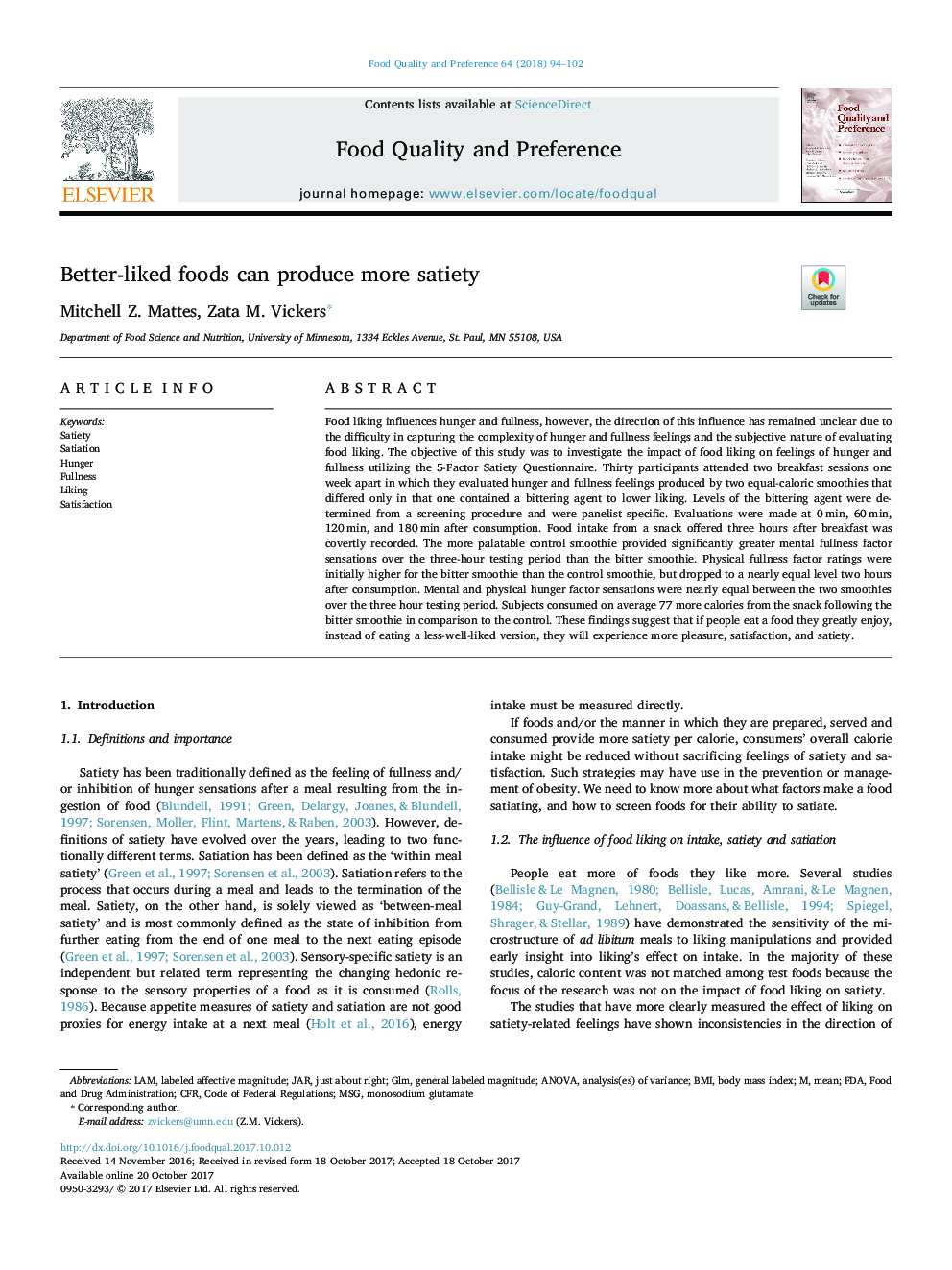| Article ID | Journal | Published Year | Pages | File Type |
|---|---|---|---|---|
| 8838572 | Food Quality and Preference | 2018 | 9 Pages |
Abstract
Food liking influences hunger and fullness, however, the direction of this influence has remained unclear due to the difficulty in capturing the complexity of hunger and fullness feelings and the subjective nature of evaluating food liking. The objective of this study was to investigate the impact of food liking on feelings of hunger and fullness utilizing the 5-Factor Satiety Questionnaire. Thirty participants attended two breakfast sessions one week apart in which they evaluated hunger and fullness feelings produced by two equal-caloric smoothies that differed only in that one contained a bittering agent to lower liking. Levels of the bittering agent were determined from a screening procedure and were panelist specific. Evaluations were made at 0â¯min, 60â¯min, 120â¯min, and 180â¯min after consumption. Food intake from a snack offered three hours after breakfast was covertly recorded. The more palatable control smoothie provided significantly greater mental fullness factor sensations over the three-hour testing period than the bitter smoothie. Physical fullness factor ratings were initially higher for the bitter smoothie than the control smoothie, but dropped to a nearly equal level two hours after consumption. Mental and physical hunger factor sensations were nearly equal between the two smoothies over the three hour testing period. Subjects consumed on average 77 more calories from the snack following the bitter smoothie in comparison to the control. These findings suggest that if people eat a food they greatly enjoy, instead of eating a less-well-liked version, they will experience more pleasure, satisfaction, and satiety.
Keywords
Related Topics
Life Sciences
Agricultural and Biological Sciences
Food Science
Authors
Mitchell Z. Mattes, Zata M. Vickers,
